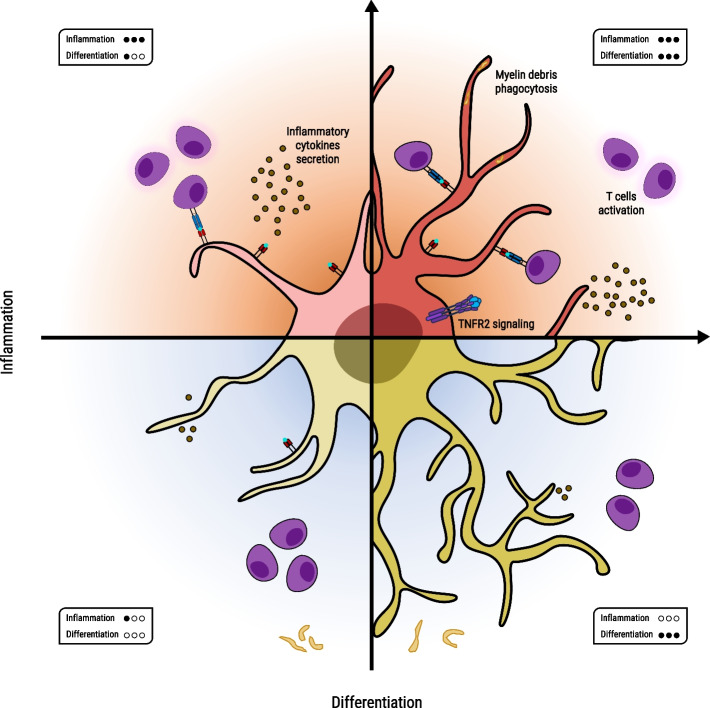Fig. 1.
A multi-dimensional view: OPCs’ immune-modulation and pro-myelinating roles. Under inflammatory conditions, the CNS is abundant with detrimental inflammatory products such as IFNγ and myelin debris. These products suppress OPC differentiation while stimulating their immune activities, including phagocytosis, antigen presentation, and cytokine secretion [10, 104, 129, 130] (left upper panel). OPCs fail to differentiate into mature myelinating oligodendrocytes in environments with limited inflammation or anti-inflammatory conditions. Concurrently, their immune functions, such as antigen presentation, T-cell activation, and cytokine secretion, are compromised [97, 104, 131] (left lower panel). Pushing OPCs towards differentiation, combined with non-specific immune suppression, enables OPCs to differentiate into mature oligodendrocytes. However, this fails to ameliorate the disease burden in the Biozzi chronic EAE model (it also did not promote OPC migration to the areas of axonal loss). Additionally, their immune activities are dampened, preventing them from performing their immune-related roles [109, 132–134] (right lower panel). Successful remyelination relies on a well-regulated immune response, spatially and temporally controlled and of appropriate intensity [135, 136]. OPC must fulfill both roles: the regenerative and immune functions. OPCs are tasked with balancing both regenerative and immune functions. TNFα and oligodendroglial TNFR2 exemplify agents that harmonize the regenerative and immunological duties of OPCs within the inflamed CNS, endorsing both differentiation and immune-modulation [94, 97, 104, 111, 137] (right upper panel)

